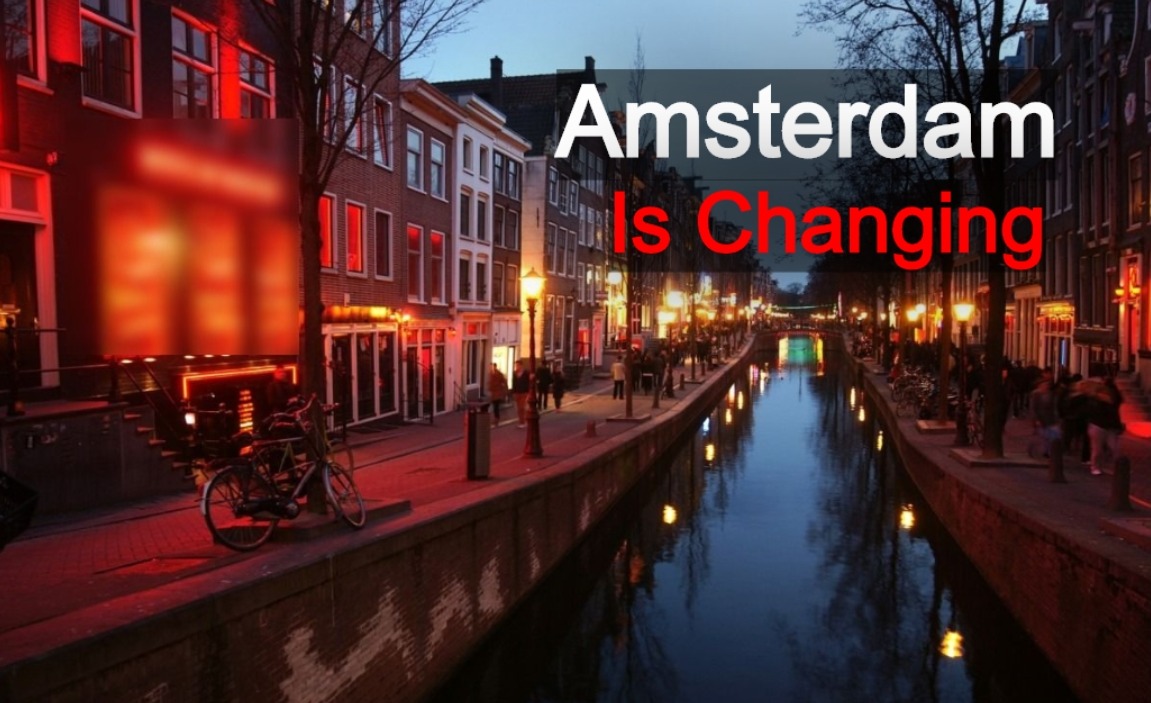Amsterdam won't be the same and it's a good thing
Amsterdam is troubled with ‘overtourism’ from quite some time now as it fights to retain the tag of Europe's safest city.

- Country:
- Netherlands
To many people, Amsterdam is synonymous with freedom. Prostitution is legal and licensed in the Netherlands since 2000 and the country introduced “gedoogbeleid” or “policy of tolerance” for soft drugs long before other countries were even debating about it.
Under the policy of tolerance, ‘coffeeshops’ can have an all-out menu of cannabis products ranging from pre-rolled joints, brownies to blunt cannabis cigars and you can just consume them in full public view, even in front of a cop just to amplify the sense of ‘freedom’ to it.
But Amsterdam is changing and, very soon, the city might not be how you know it. The city is troubled with ‘overtourism’ from quite some time now and city authorities are trying to discourage ‘drug and prostitution tourism’ as they fight to maintain a high quality of life for residents and also retain Amsterdam’s tag of the safest city in Europe.
A quote by John Green aptly portrays the situation, “some tourists think Amsterdam is a city of sin, but in truth it is a city of freedom. And in freedom, most people find sin.”
While visiting the city on New Year’s eve, I witnessed the famous Dam Square being clogged by tourists even as authorities partially restricted public transport in advance and shops, except for food joints, closed early. The flow of tourists and party-seekers was so much that emptying dustbins every half an hour was just not enough and single-use plastics were all around the most iconic buildings of Netherlands, and the need for change seemed imminent.
19 million people visited the city of about 850,000 residents in 2018 and the number of tourists is expected to rise to 21 million this year, according to a pre-coronavirus forecast.
Amsterdam is changing
City authorities led by Amsterdam’s first female mayor, Femke Halsema, are set out on a path to restore the high quality of life particularly impacted by ‘unruly tourists’. As part of the measures, the mayor plans an overhaul of the infamous red-light district ‘De Wallen’ and might also introduce restrictions on who can buy cannabis apart from the tightened regulations that have already lowered the number of coffeeshops that can sell cannabis.
The mayor has already imposed a ban on all guided tours in the De Wallen and it will come into effect from April. Tour guides found to be breaking the rules – after a ‘warning period’ of six weeks from April 1, 2020 – will be fined and the tour will be disbanded immediately. Halsema had earlier as well raised concerns about noisy and rowdy hordes of tourists who harass sex workers.
Victor Everhardt, deputy mayor for economic affairs, said red-light district tours had been outlawed because it was “disrespectful to treat sex workers as a tourist attraction”.
Apart from the ban on guided tours, the city is also considering moving part of the red light district indoors and the city council in a statement recently said that “a prostitution hotel with indoor windows or an erotic center is the most obvious choice.”
The measures being considered against cannabis are also somewhat linked to the red light area, where many such coffeeshops are clustered. Halsema recently sought to win political backing to restrict the sale of cannabis to tourists. She presented a survey by Amsterdam’s research, information and statistics office to councilors which revealed that a third of foreign tourists and nearly half of Britons would be less likely to visit the city again if they were barred from buying cannabis in the coffee shops.
The city also closed down several coffeeshops a couple of years ago under a government-backed scheme to shut down any such establishment within 250 meters of a school.
Increasing drug tourism and policy paradoxes have given rise to crime and back doors while also degrading the quality of life for residents.
Tourism is still an important industry for Amsterdam which brings in billions of dollars of revenue every year and the government is actively promoting other destinations across “lesser-known neighborhoods” of the city and the country. Boasting a huge number of museums, Amsterdam has more culture per capita than any other city on Earth and the authorities plan to capitalize on that while phasing out ‘unruly tourism’.
(Disclaimer: The opinions expressed are the personal views of the author. The facts and opinions appearing in the article do not reflect the views of Devdiscourse and Devdiscourse does not claim any responsibility for the same.)
- FIRST PUBLISHED IN:
- Devdiscourse










